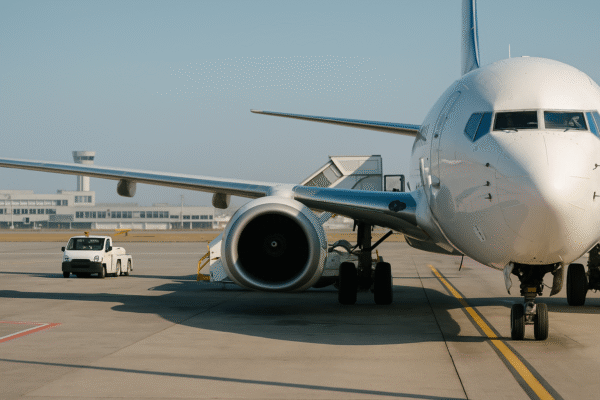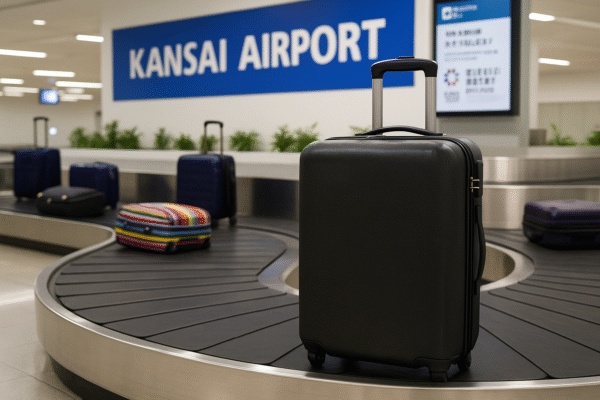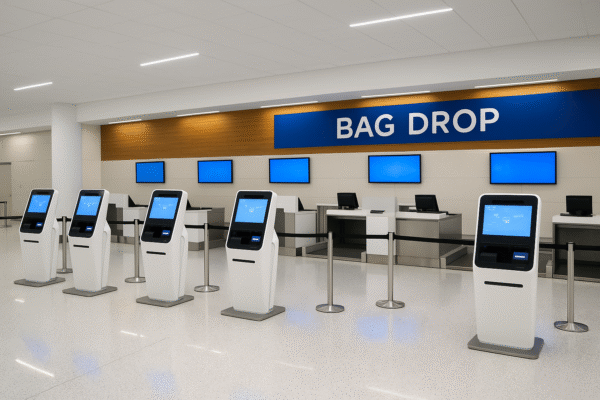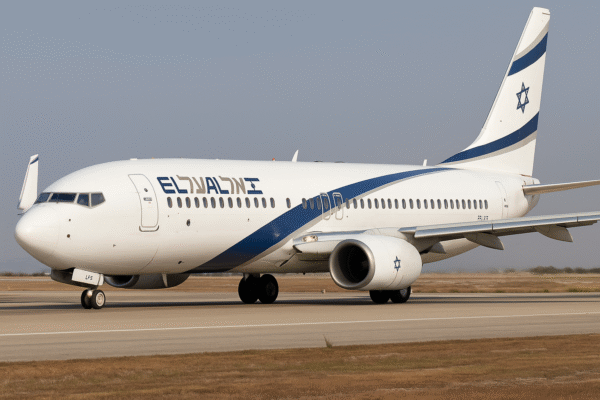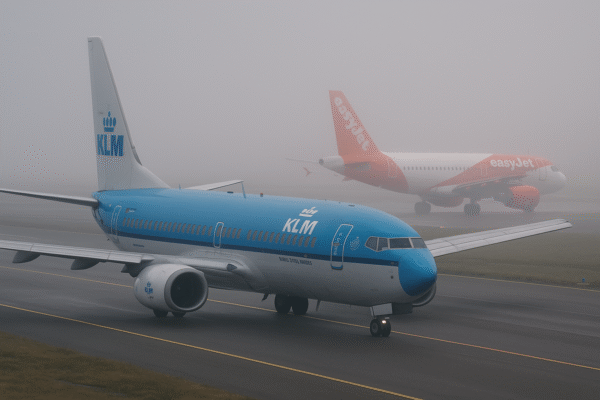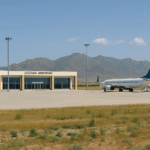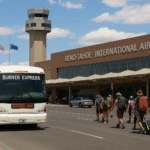Dense fog blanketing Amsterdam’s Schiphol Airport has triggered widespread cancellations and delays, causing significant travel disruptions for passengers flying with KLM and easyJet across Europe and the United States. The disruption, worsened by operational challenges such as staffing shortages and logistical bottlenecks, has left thousands of travellers stranded or rerouted.
KLM reported the cancellation of nine flights and delays across both short-haul and long-haul routes. High-frequency connections to Munich, Gothenburg, and Budapest were severely impacted, while transatlantic services to Portland, Chicago, and Washington D.C. faced lengthy delays. EasyJet, meanwhile, reported one cancellation but more than 100 delayed flights, with routes between the United Kingdom and the Netherlands, particularly the Liverpool–Amsterdam corridor, hit the hardest.
Fog and Operational Pressures at Schiphol
Amsterdam Schiphol, one of Europe’s busiest international hubs, experienced sharp visibility drops early in the day due to dense fog. This forced ground operations to slow, affecting runway scheduling, baggage handling, and flight departures. As delays built up throughout the day, passengers at Schiphol and other connected airports experienced long queues, missed connections, and extended waiting times.
The disruption highlights the vulnerability of major European hubs to sudden weather changes. Schiphol, already operating under high pressure during the peak summer travel season, struggled to keep operations stable as flight schedules became increasingly congested. Delayed turnarounds and crew scheduling issues added to the chaos, magnifying the ripple effect across other airports in Europe.
Passenger Impact Across Europe and the US
Travellers across multiple markets — including the UK, Germany, Sweden, and the Netherlands — reported severe inconvenience. Those traveling to or from major cities such as Munich, Gothenburg, and Amsterdam faced hours of delays, while passengers on transatlantic flights to Portland, Chicago, and Washington D.C. encountered missed connections and overnight layovers.
For short-haul passengers, particularly those flying between Liverpool and Amsterdam with easyJet, the delays caused significant disruptions to weekend and business travel plans. Many travellers faced delays lasting several hours, with some forced to rebook flights for the following day.
Airports experienced high passenger volumes as airlines scrambled to reassign flights, offer vouchers, or rebook affected customers. Some passengers were provided overnight accommodations, while others were advised to remain flexible and await updates on flight rescheduling.
Passenger Rights and Compensation
Under European Union Regulation 261, travellers impacted by these disruptions are entitled to certain protections. Passengers whose flights were delayed by more than three hours or cancelled without at least 14 days’ notice may qualify for compensation ranging from €250 to €600, depending on the flight distance. Even in cases of weather disruptions classified as “extraordinary circumstances,” airlines remain obligated to provide care — including meals, refreshments, and accommodations — for passengers stranded due to operational delays.
Affected travellers have up to one year to submit compensation claims and are advised to retain boarding passes, receipts, and any communication with the airline to support their cases. Both KLM and easyJet have set up digital platforms for passengers to rebook flights, request refunds, or initiate claims for compensation and travel assistance.
Broader European Aviation Strain
This disruption follows a summer of heightened challenges for European aviation. Recent weeks have seen recurring delays and cancellations across the continent due to staff shortages, air traffic control constraints, and unpredictable weather patterns. High travel demand during peak season has added additional pressure to airlines and airports still recovering from pandemic-era cutbacks.
Industry experts warn that such disruptions are likely to continue until systemic improvements in scheduling, staffing, and air traffic control capacity are implemented. The situation is particularly critical at major hubs such as Amsterdam, London, and Frankfurt, where high passenger throughput leaves little room for operational error when unexpected challenges arise.
Tips for Travellers
For travellers planning journeys in the coming days, experts recommend the following strategies to minimize disruption:
- Check Flight Status Frequently: Use airline apps or official airport websites to stay updated on real-time changes.
- Plan for Extra Time: Build additional time into itineraries, especially if connecting flights are involved.
- Know Your Rights: Familiarize yourself with EU Regulation 261 to ensure you receive appropriate compensation and care in case of delays or cancellations.
- Keep Essentials Handy: Pack critical items in carry-on luggage in case of extended delays or overnight layovers.
- Opt for Early Flights: Morning flights tend to face fewer cumulative delays compared to afternoon and evening departures.
Looking Ahead
With weather patterns growing increasingly unpredictable, combined with continued staffing and logistical challenges, further disruptions in the coming days remain a strong possibility. Both KLM and easyJet have indicated that they are monitoring the situation closely and will adjust schedules to restore normal operations as quickly as possible.
Passengers traveling on affected routes are advised to remain flexible with their plans, keep close contact with their airlines, and consider alternative travel arrangements where feasible. Despite the disruption, both airlines have assured travellers that measures are in place to provide assistance, rebooking options, and updates to minimize inconvenience.
As Europe’s summer travel season continues, these operational challenges underscore the importance of proactive planning and informed travel. Whether flying for leisure or business, passengers are encouraged to remain alert, patient, and prepared as the aviation industry navigates another period of heightened pressure.
For more travel news like this, keep reading Global Travel Wire










